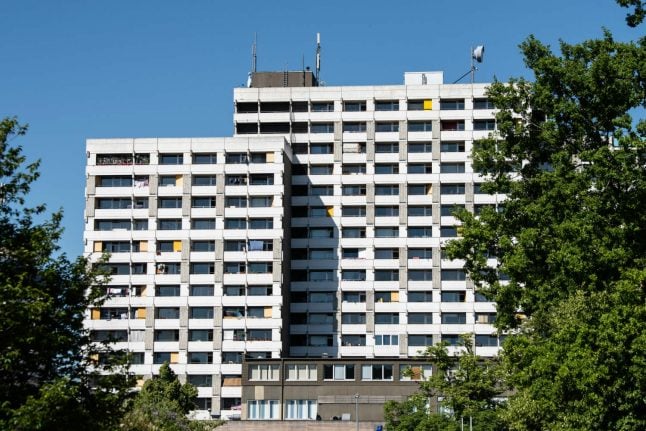Authorities in the Lower Saxony city of Göttingen are trying to track down the contact people of all those infected.
By Monday evening, more than 300 contacts to those who'd contracted the virus had been identified. All of these people received strict quarantine orders.
“They are not allowed to leave their apartments, not even to go shopping,” said the Göttingen city spokeswoman Cordula Dankert.
As of Tuesday morning, at least 68 people were confirmed to have contracted the virus, with one person needing hospital treatment. A total of 131 people have been tested, but that number will likely rise.
The outbreak is linked to several private parties. According to local newspaper the Göttinger Tageblatt, many of those affected live in a high-rise housing complex.
The city said that 57 children and young people were among the contact people, and that the safety precautions in 13 schools were being adapted to reduce the risk of the virus being passed on.
These include the obligation to wear a face mask on school grounds and in buildings, with the exception of classrooms.
In addition, schools must pay more attention to signs of illness. If a pupil tests positive for the coronavirus, all classmates and their teachers will receive a quarantine order.
R number above 1
Meanwhile, Germany's daily R number, which shows on average how many people a person with coronavirus goes on to infect, has risen above 1.
However, the seven-day R number is below 1, according to the latest figures. Experts have warned that R numbers are subject to fluctuation.
READ ALSO: Why Germany has coronavirus infections under control despite relaxing restrictions
The number of new infections in Germany remains at a comparatively low level. The health authorities in Germany reported 213 coronavirus cases to the Robert Koch Institute (RKI) within a day, reported Welt.
According to the RKI, around 182,028 people in Germany have been infected with Sars-CoV-2 since the beginning of the crisis.
In the district of Sonneberg – currently the focus of the coronavirus epidemic in Thuringia – more than 50 new infections per 100,000 inhabitants have been reported within the last seven days, according to the district office.
This makes the district the only one currently above the critical threshold of 50 agreed by the federal and state governments. An outbreak in a nursing home with very elderly residents was reported there.
The Sonneberg district has been considered a Thuringian hotspot of the corona pandemic, along with the Greiz district, for several weeks.
Thuringia – which currently has reported over 3,000 coronavirus cases, the majority which have recovered – is planning to end its coronavirus restrictions in mid-June.
So far, according to RKI, 8,522 people infected with the virus have died in Germany, which means that the number of reported deaths has risen by 11 within 24 hours. According to RKI estimates, about 166,400 people are reported to have recovered from Covid-19.
According to the latest data from the Robert Koch Institute, the reproduction rate, or R-value for short, was 1.20 on Monday (data status at 4pm; on the previous day it was 1.04). This means that a person with coronavirus infects on average slightly more than one other person. The R-value reflects the course of infection about one and a half weeks before.
Experts have hammered home the importance keeping this number under 1.
READ ALSO: How worried should we be when Germany reports a higher coronavirus infection rate?
Since the middle of May, the RKI has also indicated a so-called 7-day R. It refers to a longer period and is therefore less subject to daily fluctuations. According to RKI estimates, this value (as of 4pm Monday was 0.95, previous day: 0.90). It shows the occurrence of infection 8 to 16 days ago.
According to RKI data, most of the infections registered nationwide (67 percent) affect 15 to 59-year-olds. Overall, women and men are affected almost equally, with slightly more men (55 percent) than women (45 percent) among the deaths.
According to the RKI, the mortality rate for the infections recorded is currently 4.7 percent. In 86 percent of the reported deaths, those affected were 70 years or older.



 Please whitelist us to continue reading.
Please whitelist us to continue reading.
Member comments